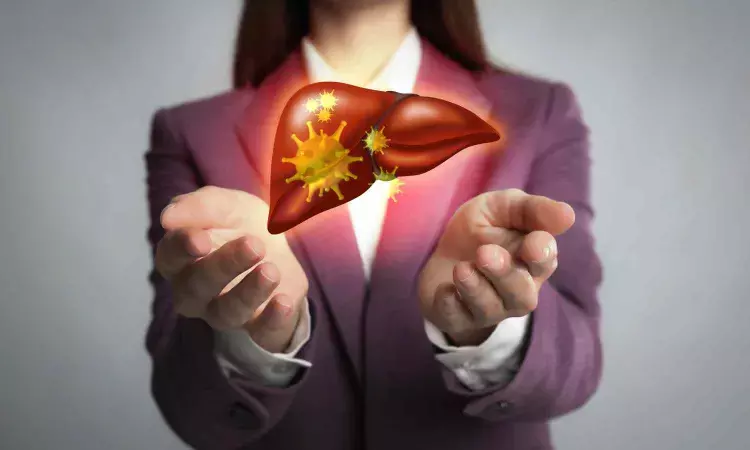- Home
- Medical news & Guidelines
- Anesthesiology
- Cardiology and CTVS
- Critical Care
- Dentistry
- Dermatology
- Diabetes and Endocrinology
- ENT
- Gastroenterology
- Medicine
- Nephrology
- Neurology
- Obstretics-Gynaecology
- Oncology
- Ophthalmology
- Orthopaedics
- Pediatrics-Neonatology
- Psychiatry
- Pulmonology
- Radiology
- Surgery
- Urology
- Laboratory Medicine
- Diet
- Nursing
- Paramedical
- Physiotherapy
- Health news
- Fact Check
- Bone Health Fact Check
- Brain Health Fact Check
- Cancer Related Fact Check
- Child Care Fact Check
- Dental and oral health fact check
- Diabetes and metabolic health fact check
- Diet and Nutrition Fact Check
- Eye and ENT Care Fact Check
- Fitness fact check
- Gut health fact check
- Heart health fact check
- Kidney health fact check
- Medical education fact check
- Men's health fact check
- Respiratory fact check
- Skin and hair care fact check
- Vaccine and Immunization fact check
- Women's health fact check
- AYUSH
- State News
- Andaman and Nicobar Islands
- Andhra Pradesh
- Arunachal Pradesh
- Assam
- Bihar
- Chandigarh
- Chattisgarh
- Dadra and Nagar Haveli
- Daman and Diu
- Delhi
- Goa
- Gujarat
- Haryana
- Himachal Pradesh
- Jammu & Kashmir
- Jharkhand
- Karnataka
- Kerala
- Ladakh
- Lakshadweep
- Madhya Pradesh
- Maharashtra
- Manipur
- Meghalaya
- Mizoram
- Nagaland
- Odisha
- Puducherry
- Punjab
- Rajasthan
- Sikkim
- Tamil Nadu
- Telangana
- Tripura
- Uttar Pradesh
- Uttrakhand
- West Bengal
- Medical Education
- Industry
Empagliflozin exhibits Safety and Renal Effects in Cirrhosis With T2DM: Study

A new clinical study has explored the role of empagliflozin in patients living with cirrhosis and type 2 diabetes mellitus, highlighting both its short-term safety and renal effects. Empagliflozin, a sodium–glucose cotransporter 2 (SGLT2) inhibitor, is widely prescribed for glycemic control in diabetes and has shown cardiovascular and renal protective benefits in several populations. In this investigation, six months of treatment with empagliflozin was found to be safe in individuals with cirrhosis complicated by type 2 diabetes mellitus, a group that often faces heightened risks due to altered fluid balance, impaired renal function, and systemic inflammation.
The treatment led to an increase in urine output and fractional excretion of sodium, suggesting beneficial natriuretic effects that could help in managing fluid retention commonly seen in cirrhotic patients.
These findings are clinically relevant because fluid overload and renal dysfunction significantly contribute to morbidity and mortality in cirrhosis, and current management options are limited. Importantly, the study did not identify new safety concerns, reinforcing the tolerability of empagliflozin in this high-risk group. However, the long-term implications for renal outcomes remain unclear. While short-term renal adaptations appeared favorable, the progression of chronic kidney disease in cirrhosis is influenced by multiple mechanisms, including portal hypertension and systemic hemodynamic alterations, which may not be fully addressed by SGLT2 inhibition alone.
Therefore, the investigators stressed the need for larger, long-duration randomized controlled trials to determine whether empagliflozin can provide sustained renal protection or alter the natural history of kidney disease in cirrhotic patients. If confirmed, these results could expand the therapeutic scope of SGLT2 inhibitors beyond diabetes and heart failure into the field of hepatology, offering new options for a population with limited treatment choices. The study also highlights the importance of individualized therapy, close monitoring, and careful assessment of risks and benefits in patients with advanced liver disease.
Dr. Shravani Dali has completed her BDS from Pravara institute of medical sciences, loni. Following which she extensively worked in the healthcare sector for 2+ years. She has been actively involved in writing blogs in field of health and wellness. Currently she is pursuing her Masters of public health-health administration from Tata institute of social sciences. She can be contacted at editorial@medicaldialogues.in.
Dr Kamal Kant Kohli-MBBS, DTCD- a chest specialist with more than 30 years of practice and a flair for writing clinical articles, Dr Kamal Kant Kohli joined Medical Dialogues as a Chief Editor of Medical News. Besides writing articles, as an editor, he proofreads and verifies all the medical content published on Medical Dialogues including those coming from journals, studies,medical conferences,guidelines etc. Email: drkohli@medicaldialogues.in. Contact no. 011-43720751


